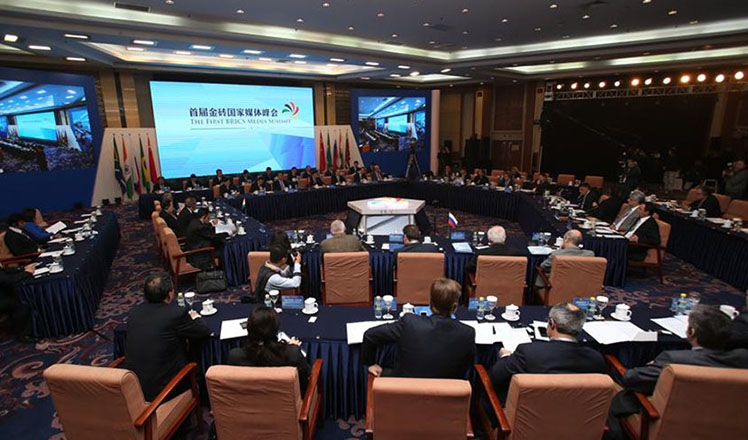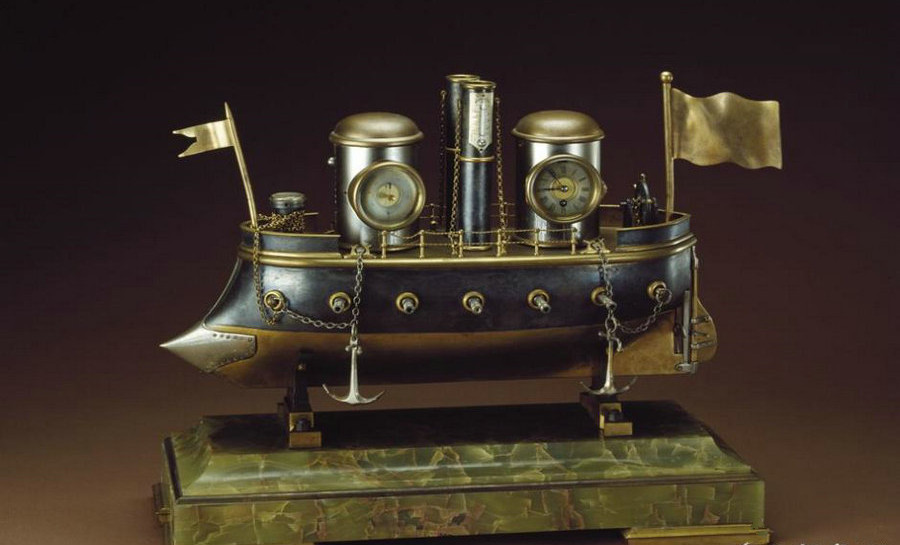Looking to land a new future
Updated: 2015-12-03 07:53
By Zhu Lixin(China Daily)
|
||||||||
Urbanization, tourism, pollution and stricter rules on environmental protection are creating new challenges for the traditional fishing industry in one of China's largest freshwater lakes. Zhu Lixin reports from Hefei.
Chaohu Lake has provided a living for generations of fishermen, but now China's fifth-largest freshwater body, in Hefei, capital of Anhui province, is being deserted as a growing number of fishermen take advantage of a wider range of employment options and turn their backs on the traditional occupation.
Last year, Xu Xiaogang decided to hang up his nets and take a job at a tourism development company in the Baohe district of Hefei. The change has provided the 38-year-old, who worked on the 760 square-kilometer lake for more than two decades, with greater job security in the face of a range of factors that are making it difficult to survive solely by fishing.
Xu was born and raised in Tangxi, a traditional fishing village on the northern shore of the lake, one of the province's most important sources of aquatic produce. His family's connection with the fishing industry dates back to the days of his grandfather.
"Years ago, at the start of the fishing seasons, the local people enjoyed the wonderful sight of hundreds of fishing boats setting off for the deeper water. It's not something you see very often nowadays," Xu said.
The village has 600 households, but only about 100 fishing boats. Residents who don't own boats work for shipowners or as laborers on the dock.
Xu's family was one of the fortunate ones. In 1992, the family replaced its old, small wooden boat with a ferrocement vessel, made from reinforced concrete, at a cost of more than 9,000 yuan ($1,413). "It was quite a lot of money at the time," he said.
In the 1990s, if a family had savings of 10,000 yuan, it was the object of respect, but also envy. Such families were known locally as "10,000 yuan households", and the sum was enough to buy a two-story store in downtown Hefei, Xu said. In his view, his family's financial security was gained through fishing, but the task was much easier then compared with now, he said.
However, in recent years, the family's income has declined in tandem with the lake's aquatic resources, which include silver fish, carp, crabs and shrimps, so Xu and his wife quit in the middle of last year. In 2013 and the preceding years, they earned about 100,000 yuan per year, and although that's on a par with earnings in many other occupations, the effort expended was far greater than in the average job.
During the six annual fishing seasons, each lasting about four weeks, Xu and his wife often worked more than 12 hours a day. The physically demanding nature of the work left them exhausted, and they occasionally found themselves in risky situations.
"You must be able to swim or it can be really dangerous work," Xu said. While most of the local men can swim, only a small number of the women are able to do so, which meant Xu always had to keep an eye on his wife for fear she might fall into the water.
"We often heard about the deaths of fishermen in the neighborhood. Most of them died by drowning," he said. The knowledge only strengthened the couple's resolve to quit the business.
Declining resources
In 2005, there were about 15 mill-ion fishermen in China, but by 2012, the number had fallen to 7.24 million.
Xu said the decline is the result of a range of causes, but the main one, in his opinion, is that "fish stocks have fallen in recent years, so the income from fishing is not that attractive anymore".
Despite the decline, the number of fishing boats around the lake has remained at about 2,600 for the past decade, according to data provided by the provincial government's Chaohu Lake administration.
However, many of the boats are no longer used for fishing, and their owners have shifted to other businesses, according to an official from the Yicheng community in Baohe district, who only gave his surname as Li.
Although they no longer fish, the owners keep their boats as a means of earning fuel subsidies from the government, according to Li: "The boats are just anchored there, helping the ship owners earn the fuel subsidiary."
In 2006, the central government introduced a policy to offer fishermen fuel subsidiaries, which varied depending on the vessel's size and engine capacity. For Xu and his wife, the subsidy amounted to more than 30,000 yuan a year.
Several years after the policy was implemented, the fishing authority decided to take action to eradicate misuse and ease the burden on government finances.
In June, the Ministry of Agriculture released a guideline to fine-tune the policy and facilitate the sustainable development of the fishing sector. According to the guideline, the ministry plans to cut the annual fuel subsidiary for fishing boats to only 40 percent of last year's level by 2020.
Another reason the number of fishing boats in Chaohu Lake remains unchanged is that the boats are home to poor fishermen from outside Anhui. An investigation conducted by local officials a few years ago showed that many fishermen who hailed from other places had no shelter on shore and had to work and live on the water.
In 2013, the province introduced a project to offer homeless fishermen homes on shore. Two years later, in July, 98.6 percent of the 19,799 non-native fishing households in the province had been housed ashore. Chen Liangjun, deputy director of Baohe's agriculture, forestry and water administration, said the project is part of urbanization efforts targeting those who make a living by fishing.
The local residents say urbanization is an inevitable process. Four years ago, Tangxi was replaced by an eco-park and wide roads, leading to the rapid development of a new urban district. Xu was given three apartments, totaling 210 sq m, in a newly constructed community several kilometers from Tangxi as compensation for relinquishing his home in the village.
However, living in high-rise apartment buildings meant that Xu and his peers found it inconvenient to store their fishing equipment, which added to the number abandoning their old occupation and seeking new jobs in the city.
"If fishermen give up their boats, they receive a considerable amount of financial support from the government," said Liu Fengyun, an official in the Yicheng community.
The policy was designed to be mutually beneficial for the fishermen and the government, so fishermen who move to the cities and want to quit the industry can claim supp-ort while they search for new jobs.
Financial support
Meng Fanzhou, 54, worked as a fisherman on Chaohu Lake for about 30 years and owned a 29-ton, diesel-powered ferroconcrete vessel and a smaller iron boat. Recently, he handed the vessels over to the Baohe government, receiving 200,000 yuan for the ferroconcrete boat and 80,000 yuan for the iron vessel. Meng said the 280,000 yuan he received as a one-time payment was the largest sum he had ever seen, and his family was pleased with the result.
The government believes that less fishing will help protect fish stocks, which is essential for the lake's ecosystem, which has been damaged by several severe outbreaks of blue-green algae, a plant that sucks oxygen out of the water, leaving it stagnant.
"Fish are very important consumers of blue-green algae, which causes outbreaks of pollution almost every year, so fishing there should be controlled," said Chen, the official from Baohe, who added that the boats also damage the water quality of the lake, which acts as a reserve water source for the city.
As the level of pollution falls, the lake can be developed as a tourist attraction. "As an industry, tourism is far more ecologically friendly and more economically sustainable than fishing," Chen said.
He added that there are currently about 500 fishing boats in Baohe, and most of them will be acquired by the government in the near future. Those deemed unsafe or likely to pollute the water will be scrapped, while those in good condition will become the property of a proposed State-owned fishery cooperative, which will hire a number of fishermen to continue the trade.
All the fish caught will belong to the cooperative, meaning the fishermen's incomes are unlikely to be as high as before, but the subsidies paid for their ships has prompted many to sign up with the cooperative rather than work on their own, according to Li, the Yicheng community official.
Other policies will be introduced over time to help former fishermen find new jobs or start their own businesses.
As an assistant to a departmental head at a tourist services company, Xu helps to arrange boat tours for visitors, and sometimes even pilots the vessels himself. His wife works for the Yicheng sanitation department, and is responsible for cleaning streets running along a scenic area on the lake's northern shore.
The couple now earns about 80,000 yuan per year, less than the 100,000 yuan they earned in their last year's as fishermen, but despite the drop in income, they are content. Their new jobs have made their lives more secure and less dangerous. "Life on board is too hard and too hazardous," Xu said.
Contact the writer at zhulixin@chinadaily.com.cn
(China Daily 12/03/2015 page6)
- Myanmar president meets Aung San Suu Kyi
- Shooting rampage at US social services agency leaves 14 dead
- New York orchestra a hot ticket in China
- Key consensus reached on cybercrimes
- White House rejects Pentagon plan to close Guantanamo prison
- Myanmar president meets Aung San Suu Kyi for post-election dialogue

 Gunmen go on a killing spree in Southern California
Gunmen go on a killing spree in Southern California
 Chinese, South African presidents hold talks to cement partnership
Chinese, South African presidents hold talks to cement partnership
 China, Zimbabwe agree to boost cooperation
China, Zimbabwe agree to boost cooperation
 First lady visits Africa's 'new window' on China
First lady visits Africa's 'new window' on China
 BRICS media leaders to secure louder global voice
BRICS media leaders to secure louder global voice
 Western science in the eyes of Chinese emperors
Western science in the eyes of Chinese emperors
 Top 10 smartphone vendors with highest shipments in Q3 2015
Top 10 smartphone vendors with highest shipments in Q3 2015
 A deepening friendship
A deepening friendship
Most Viewed
Editor's Picks

|

|

|

|

|

|
Today's Top News
Shooting rampage at US social services agency leaves 14 dead
Chinese bargain hunters are changing the retail game
Chinese president arrives in Turkey for G20 summit
Islamic State claims responsibility for Paris attacks
Obama, Netanyahu at White House seek to mend US-Israel ties
China, not Canada, is top US trade partner
Tu first Chinese to win Nobel Prize in Medicine
Huntsman says Sino-US relationship needs common goals
US Weekly

|

|








